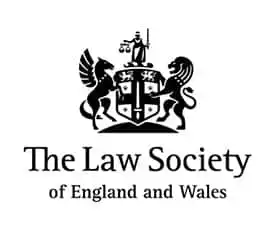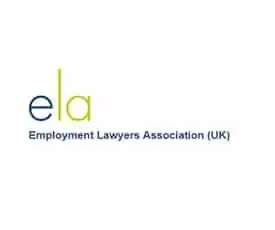
Whistleblower Lawyers
We’re a team of calm, confident and cost conscious employment lawyers. Call us today on 01793 296581
Talk to a lawyer todayWhistleblower Protection
In the UK, the framework for whistle-blowing is detailed in the Public Interest Disclosure Act 1998 (PIDA).
In the UK, employment law whistleblowing may be regarded as making a protected disclosure under that Act. The Act itself derives from the Employment Rights Act 1996 which also details the law related to unfair dismissal. To qualify for protection, individuals must have a reasonable belief that a wrongdoing has already occurred, that wrongdoing is likely to occur and that it is in the public interest. It is not compulsory for the wrongdoing to have actually occurred, however, there needs to be a reasonable belief that it is true.

Whistleblower Solicitors
A protected disclosure must relate to one of the following:-
- A breach of legal obligation;
- a criminal offence;
- damage to environment;
- a danger to the health and safety of an individual; or
- a miscarriage of justice.
One of the key questions is whether or not the individual allegedly making a protected disclosure has a reasonable belief that the disclosure shows one of the relevant failures and is in the public interest. The fact that the individual’s belief may subsequently turn out to be wrong does not in itself render the making of the disclosure unreasonable and thus deprive an individual from whistleblower protection. It is, however, important to have some basis for the belief that the disclosure shows one of the above failures and is in the public interest.
Whistleblowing Reading
Individuals would be well advised to make disclosures either to their employer or to a relevant statutory body. If the worker feels unable to report the issue internally, they may disclose it to a prescribed person or body such as a regulatory authority such as HM Revenue and Customs or the Health and Safety Executive. Whistleblowers are given significant protections under PIDA. In particular, they are protected from any unfair dismissal because if a worker is found to be dismissed for any reason linked to the making of a disclosure, that dismissal would be automatically unfair in the Employment Tribunal. In addition, if an individual were to be dismissed due to the making of a protected disclosure, there would be no requirement for two consecutive years of service to bring that claim to the Employment Tribunal.
In addition to this, whistleblowers are protected from being subjected to any detriments due to any of the above disclosures. Detriments could include disciplinary action taken against them or variations to their terms and conditions of employment as a result of the making of a protected disclosure. Training and communication about whistle-blowing policies within the workplace are essential with a view to avoiding situations which could give rise to claims for whistle-blowing in the Employment Tribunal.
Whistleblowing claims in the Employment Tribunal have similarities to discrimination claims insofar as the damages which can be recovered for these claims are not subject to any limit. In addition, similar to discrimination claims, successful claimants bringing claims of whistleblowing are able to recover unlimited compensatory damages for loss of salary as well as a sum attributable to their injury to feelings. This is different from an ordinary unfair dismissal claim where one can only claim sums arising from financial losses rather than sums arising from injury to feelings.
Employers would be well advised to implement a whistle blowing policy at the workplace and to make it available for all staff to view on the employer’s intranet. Managers should be trained in the application of whistle blowing policies with a view to avoiding situations that could give rise to whistle blowing claims.
Settlement agreements can be entered into with individuals who are involved in employment disputes. However, these settlement agreements cannot stipulate that individuals are prevented from reporting their employer to the authorities. What this means is that employers, even when they offer settlement agreements to individuals and agree to gagging clauses within those settlement agreements, cannot be certain that individuals will not make a report to the authorities after signing the agreement. For this reason, there has to be an element of trust involved in resolving any whistleblowing claim due to the fact that it is not lawful to compromise the disclosure of unlawful acts to regulatory authorities.
For further advice on this complex area of law, please do not hesitate to contact us on one of the telephone numbers provided.
What Can We Help With?
- Settlement and compromise agreements
- Unfair dismissal advice
- Employment tribunal advice
- Discrimination claims
- Redundancy advice
- Breach of contract
- Advice on maternity and paternity leave
- Book A Free Consultation
- Understand Your Situation
- Know Where You Stand
Our 3 Step Process
Book A Free Consultation
This complimentary consultation allows our employment solicitors to understand more about your specific situation so we can provide you with the best advice possible.
We’ll lay out your options and will advise you upfront of any costs involved.
Our 3 Step Process
Understand Your Situation
Understanding your unique situation will help us to understand how we can help you move forward with more clarity.
Although everyone’s situation is unique, we’ve most likely dealt with similar scenarios before.
Our 3 Step Process
Know Where You Stand
Whether that’s pursuing unfair dismissal, negotiating a larger settlement agreement, starting a claim for discrimination or simply having peace of mind.
We’ll help you feel clearer and more settled.

0 / 127
5 star reviews

0 / 50
5 star reviews
Yell.com

0 / 231
5 star reviews
ReviewSolicitors
Client Feedback
We have formed many long-lasting relationships by listening to feedback and understanding our clients’ needs. Our employment law advice provides exceptional care and tailored support.
Award Winning Service
Our award-winning legal services are recognised for excellence, professionalism, and client success. We provide tailored strategies with a focus on precision, integrity, and results.
Contact a Lawyer Today
Davidson House,
Forbury Square,
Reading, Berkshire,
RG1 3EU
0118 914 5622
info@dphlegal.com









